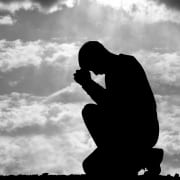“God is spirit, and those who worship him must worship in spirit and truth.”
(John [4:24])
TRUTHFUL PRAYER STRENGTHENS OUR PARTNERSHIP WITH GOD
Our prayers are our way of talking with God through Jesus. They are our way of creating and growing a stronger personal relationship with God. Over time it becomes a deep mutual partnership in our lives. As with any relationship, we must approach it with complete honesty. For this relationship to become strong, a high degree of mutuality and truth must be present. The relationship with God is sacred. Jesus tells us, “God is spirit, and those who worship him must worship in spirit and truth.” (John [4:24])
“Being truthful strengthens our partnership with God.”
If we want to have reliable relationships, it must come from a spirit of being truthful. So, it is with God as well. When we communicate with God, our goal should be of taking responsibility for our actions and to be truthful. Being truthful strengthens our partnership with God. Our mirror is then always pointed to ourselves. However, when we simply deflect difficult conversations back to God, we are not really searching for the truth, we are searching for an easier way out of difficulty.
When we pray, truthful admissions help our prayers. When we only point our problems back to God, we disrupt the relationship. Sure, God wants to hear our anguish, joys, and concerns, but God also wants us to be a partner. God has plans for us that require our active involvement.
“Our Prayers are our direct line to God through Jesus.”
Prayer life is the essential part of building faith. It requires daily persistence, patience and truthfulness. No one’s faith can be built without these ingredients. Prayer that is Biblically based will be fundamentally sound. Our Prayers are our direct line to God through Jesus. We will see answers, not in only in human terms, but through miraculous events that are so extraordinary and personal, we know they are from God. We will move from seeing things as random, to an answer from God. Through a productive prayer life our faith is strengthened, and we are healed through our continuous dialogue with God.
Blessings, until next time,
Bruce L. Hartman
Photo by Davide Cantelli










